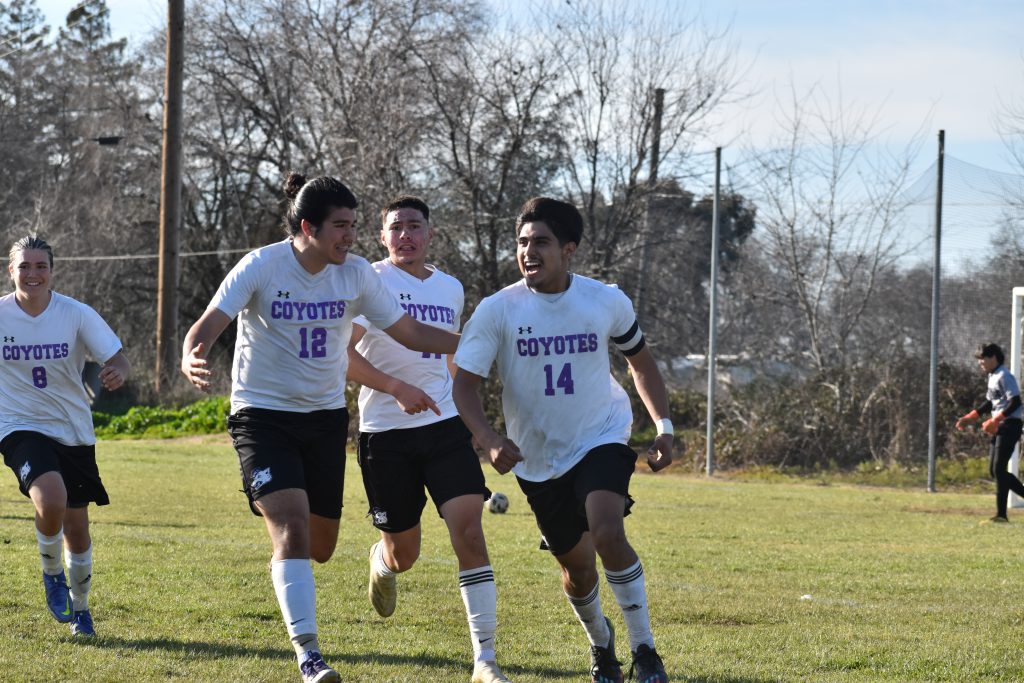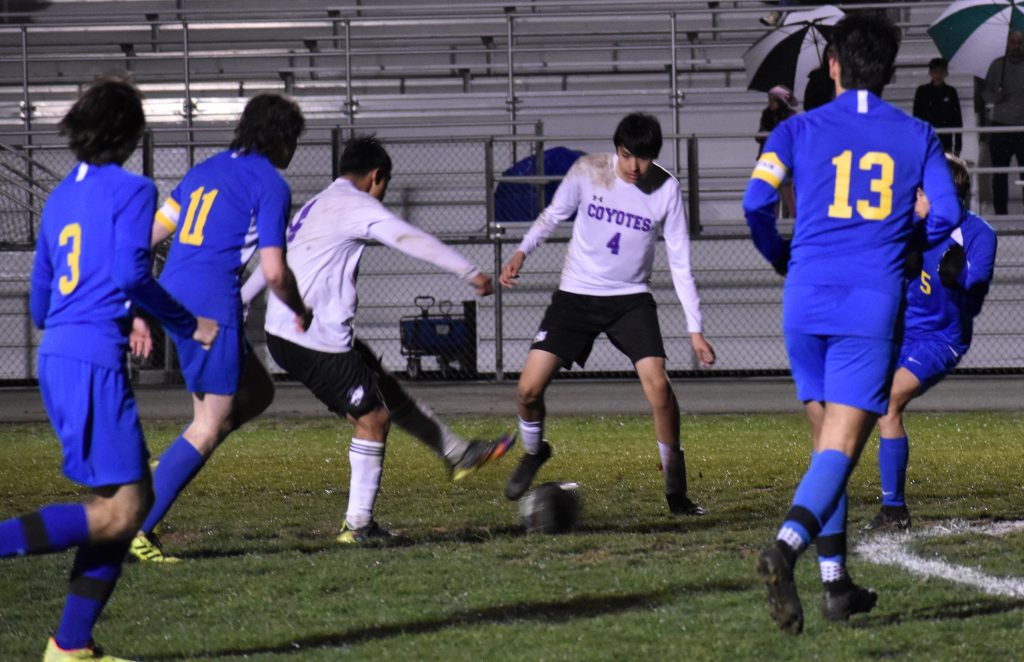
A dramatic recreation of a fatal car wreck involving five Denair High teens sent a powerful message to their classmates about the dangers of driving while under the influence of alcohol or drugs.
The grisly scene on the grassy space west of Denair’s football field in which three teen-agers “died” was coupled with 15 obituaries read in class on the same day for 15 other students who had been “killed” in DUI or drug-related collisions. Red roses were left at their desks and their chairs remained empty the rest of the day. Headstones with all the students’ names were erected where everyone could see them. An emotional memorial service with tributes to the teens was held the next day.
The situations depicted did not happen, but the shock, sadness and grief they generated felt all too real for students and staff. And that was the point of the Every 15 Minutes program, a partnership of the California Highway Department, school districts, first responders, hospitals and local businesses whose goal is to reduce alcohol- and drug-related traffic incidents involving youth.
The intent, according to the CHP website, is to challenge teens “to think about drinking, driving, personal safety, the responsibility of making mature decisions and the impact their decisions have on family, friends, their community and many others.”
“I would say there was a significant impact on the student population and their emotions,” said Denair High Principal Breanne Aguiar.
Denair High has participated in Every 15 Minutes every four years for quite a while, assuring that each student will be exposed to the message once during his or her high school career. A 24-minute video chronicles all the events of the first day this year. A portion of the video was shown at the March meeting of the Denair Unified Board of Trustees, where a hushed silence fell over the room as scene played out.
“I’ve witnessed the program a few times and it doesn’t get any less real each time,” said Trustee Ray Prock Jr.
Preparation for the program was a monthslong process, Aguiar said. The students involved in the wreck or to have obits read about them were chosen by staff in advance. They represented different grades and levels of notoriety on campus. They and their parents were sworn to silence ahead of time, had to attend a meeting with a CHP officer to learn more about the program and didn’t know what role they will be playing until the morning of the event, when they met at the nearby Connecting Point Church of the Nazarene to have the necessary makeup applied (if they were in the crash scene).
Even most Denair staff are kept in the dark about Every 15 Minutes, so when the disaster drill rang at 9:15 a.m. and more than 270 students and about 35 teachers and staff members were quickly directed to the field, few knew what to expect.
“We wanted it to be a shock for everyone,” Aguiar explained.
The scene was gruesome. Two cars – one driven by Diana Chavez, the other by Chris Hernandez – had hit head-on. Chavez lay sprawled on the hood of her car, having been thrown through the windshield. She was pronounced dead at the scene. Her passenger, Emanuel Renteria, was critically injured.

Alisa Gomez, a passenger in Hernandez’s car, survived the wreck along with him. Another teen riding with Hernandez, Brandon Corona, lay in the back seat, badly hurt. As Gomez frantically rushed from car to car, screaming in anguish as she saw the nature of the injuries, Hernandez wandered around in a fog because he had been drinking alcohol and/or was high on opioids.
As students and staff watched from the bleachers over the next 45 minutes, Denair fire personnel and other first responders arrived and began working on Renteria and Corona in an effort to save their lives. An ambulance raced in to take Renteria to Doctors Medical Center in Modesto. Soon, the “whoomp,” “whoomp,” “whoomp” of a medical helicopter could be heard. It landed in the field and the EMTs quickly loaded Corona onboard for the flight to Doctors.
Tragically, neither boy survived, despite the best work of doctors of nurses in the emergency room. The video shows the lead doctor calling the time of death after resuscitation efforts failed.
Even though the injured students’ families had been warned in advance what to expect, the emotional impact was jarring. Renteria’s father was so distraught upon seeing his “dead” son covered with real-looking blood at the hospital that Emanuel was told to “wake up” to reassure his dad that he was OK. Likewise, Chavez’s sisters were jolted when they had to identify her body at the coroner’s office.
Hernandez, meanwhile, was handcuffed in front of his peers and taken to the Stanislaus County Jail, where he was booked for DUI and placed into a cell.
Grief counselors were brought to the school to work with any students who needed them. Many teachers used the Every 15 Minutes program as an opportunity to talk with teens about what they saw and felt. Students also were encouraged to write letters to their peers who had died.
Later, all the students involved in the exercise and their parents were invited to a meeting where they could talk about their feelings and share their emotions.
The day after the pretend collision, a memorial service was held in the Denair High gym for the students killed in the wreck. The headstones were relocated there. Letters written by the students and their families members were read. Hernandez also read a letter, expressing his remorse and sorrow. A woman who had caused a real-life DUI fatal collision in Contra Costa County a few years ago also spoke, warning again about the dangers of drinking and driving. When she was finished speaking, she removed her outer layer of clothing, revealing an orange prison jumpsuit, the one she wears as an inmate of the Women’s Correctional Facility in Chowchilla.
“I think the memorial service was where the message really hit home for a lot of students,” said Aguiar.
To watch the complete first-day video on You Tube, click this link https://youtu.be/YHLXROfgsB0


